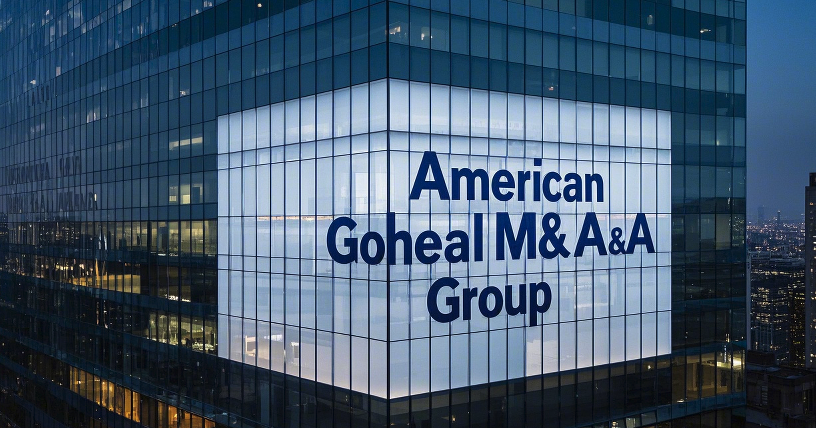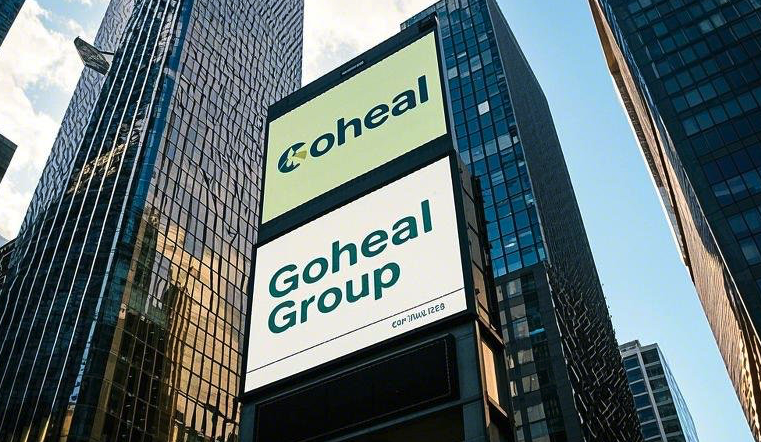"Know yourself and know your enemy, and you will never be defeated in a hundred battles." This famous saying that has been passed down through the ages still has far-reaching guiding significance in the current business environment. In the complex arena of mergers and reorganizations of listed companies, in order to pass smoothly, in addition to clear strategies and strong execution, you must also have a full understanding of the potential risks in each link, especially in the evaluation of financial budgets. This seemingly simple step hides huge challenges. In many cases, it can determine the "lifeline" of the success or failure of mergers and reorganizations.

American Goheal M&A Group
In Goheal's many years of experience in mergers and reorganizations, we found that one of the most challenging links is budget evaluation. The budget seems to be a result that can be obtained through simple mathematical calculations, but in reality, the budget often deviates due to many uncertain factors. Moreover, the impact of these deviations is often gradually magnified in the post-merger integration process, and eventually forms the so-called "budget black hole". If these potential risks are not identified and avoided in advance, the entire merger and reorganization plan may fall into an unmanageable dilemma.
What is a "budget black hole"?
The so-called "budget black hole" refers to the fact that during the process of mergers and acquisitions, the management errors or budget deviations of the enterprise budget lead to capital investment far exceeding expectations, and these overspending are difficult to be effectively controlled or adjusted, which ultimately has a serious impact on the financial status of the enterprise and the effectiveness of mergers and acquisitions. For listed companies, budget overspending not only means tight capital chain, but also may cause distrust in the capital market and even lead to a corporate credibility crisis.
"Budget black holes" often have several common characteristics: their existence is not easy to be discovered in advance; their risk points are extensive, involving the allocation of funds and resources in multiple links; once they appear, they often require a great price to repair. In other words, any small mistakes in budget management may form a big problem that cannot be solved in the future integration stage.
In many projects that Goheal has participated in, we have encountered many "black holes" caused by budget imbalances. These mistakes not only put the merger and acquisition plan in trouble, but also made the company miss many valuable growth opportunities. How to avoid this situation has become a problem that every merger and acquisition project team must think deeply about.
Why is budget evaluation so difficult?
Budget evaluation in the process of mergers and acquisitions is not a simple capital calculation. It involves many complex factors and needs to be considered from multiple angles. First, the goals and strategies of corporate mergers and acquisitions are often full of uncertainty. For example, the asset status, market prospects and integration difficulties of the target company may lead to budget deviations. Moreover, in many cases, the target company may not have completely transparent financial data or integration plans, which makes budget assessment more difficult.
Secondly, in the process of mergers and acquisitions of listed companies, the budget is not just an estimate of a single financial matter. It also involves multiple links such as strategic adjustment, cultural integration, and technological integration. In these links, budget changes are often dynamic. For example, after the merger, the company may find that the management and corporate culture of the target company are quite different from its own, so it needs to invest additional funds for management adjustment or cultural integration, resulting in deviations from the original planned budget.
More importantly, in the process of mergers and acquisitions, it is difficult for companies to accurately estimate the cost of integration. Integration work is often a long and complicated process, especially in cross-border mergers and acquisitions and cross-industry mergers and acquisitions. Factors such as cultural conflicts, process reconstruction, and employee relocation will lead to budget overruns. Without sufficient budget flexibility, companies may fall into a seemingly irreparable financial dilemma.
How to avoid the "budget black hole"? Goheal's way of thinking
In Goheal's view, to avoid "budget black holes", the most important thing is to keep the budget flexible and forward-looking in every link of M&A and restructuring. From our many years of M&A experience, the following aspects are crucial.
1. Rigorous due diligence, accurate identification of potential risks
Due diligence is the most important part of the M&A process and an important guarantee to ensure the accuracy of budget assessment. Many times, the deviation of the budget does not come entirely from the financial data itself, but from the deviation in the assessment of the target company. Through comprehensive and in-depth due diligence, companies can more accurately understand the true situation of the target company, including its financial situation, management capabilities, market risks, technical capabilities and other aspects.
When conducting due diligence, Goheal pays special attention to evaluating the potential integration difficulties of the target company. Through in-depth communication with the management of the target company, close cooperation with industry experts, and a comprehensive review of the company's internal processes, we have helped clients identify many hidden risks. These risks may not be directly reflected in the financial statements, but may have a profound impact on the execution of the budget.
For example, when we helped a technology company acquire a startup, through careful due diligence, we found that the company's core technology development team had a large liquidity risk. If the team stability plan is not prepared in advance, it may cause the originally planned R&D progress to be delayed, which in turn affects the profit expectations after the merger and acquisition. The early identification of this risk provides a valuable reference for later budget adjustments and fund allocation.
2. Budget flexibility, reserve funds to deal with uncertainty
Budget flexibility is the key to avoiding the "budget black hole". The unpredictability in the merger and acquisition process is extremely high. When making a budget, companies need to fully consider possible variables and reserve emergency funds for these variables.
Goheal believes that companies should reserve a certain proportion of "flexible funds" in the budget to deal with emergencies. For example, when conducting cross-border mergers and acquisitions, companies may encounter external factors such as policy changes and exchange rate fluctuations in different countries, which may lead to budget overruns. By reserving sufficient emergency funds, companies can maintain budget stability in the face of these uncertainties.
In addition, in terms of budget flexibility, it is also necessary to pay attention to changes in the integration process. For example, changes in management, employee retraining, and technology integration may affect the execution of the budget. Therefore, companies should regularly check the budget execution and make timely adjustments based on actual conditions.
3. Multi-dimensional integration plan to clarify the allocation of funds in each link
Post-merger integration is a complex process involving organizational structure adjustment, personnel training, marketing, IT system reconstruction and other links. Each link requires detailed budget planning and fund allocation. If the company fails to fully consider the budget needs of each link when formulating the integration plan, it may lead to resource mismatch and waste of funds, and eventually form a budget "black hole".
Goheal believes that when formulating an integration plan, companies should consider the allocation of funds from multiple dimensions. M&A integration is not just the task of the financial team. Business departments, IT departments, HR departments, etc. all need to participate in the formulation and adjustment of the budget. Through cross-departmental collaboration, companies can ensure the reasonable allocation of budgets and maximize the use of limited financial resources to ensure the smooth progress of M&A integration.
4. Continuous budget tracking and adjustment mechanism
Budget management is not a one-time job, but a continuous process. In the process of M&A integration, companies need to continuously track the implementation of the budget, identify problems in a timely manner and make adjustments. By establishing an efficient budget tracking mechanism, companies can take measures before budget overruns occur to avoid the emergence of "budget black holes".
Goheal has set up a regular budget review mechanism in many M&A projects to ensure that deviations in budget execution are discovered as soon as possible after the M&A and that adjustments are made in a timely manner. The establishment of this mechanism has greatly improved the efficiency of budget execution and avoided large-scale budget overruns.
Conclusion: Prepare in advance to avoid "budget black holes"
In the process of M&A and restructuring, budget management is an important factor in determining the success or failure of a project. Through accurate budget assessment, flexible funding arrangements and continuous budget tracking, companies can effectively avoid the emergence of "budget black holes" and ensure the smooth completion of M&A integration. So, have you ever encountered the troubles caused by "budget black holes" during the M&A process? How to overcome this problem through reasonable budget management? Welcome to share your views and experiences in the comment area, and let's discuss the way of budget management in M&A and restructuring.

Goheal Group
Goheal looks forward to discussing with you how to maintain financial stability in complex M&A and restructuring to ensure the smooth implementation of projects and continued growth in the future.
[About Goheal] Goheal is a leading investment holding company focusing on global mergers and acquisitions. It has deep roots in the three core business areas of acquisition of controlling rights of listed companies, mergers and acquisitions of listed companies, and capital operations of listed companies. With its profound professional strength and rich experience, it provides companies with full life cycle services from mergers and acquisitions to restructuring and capital operations, aiming to maximize corporate value and achieve long-term benefit growth.